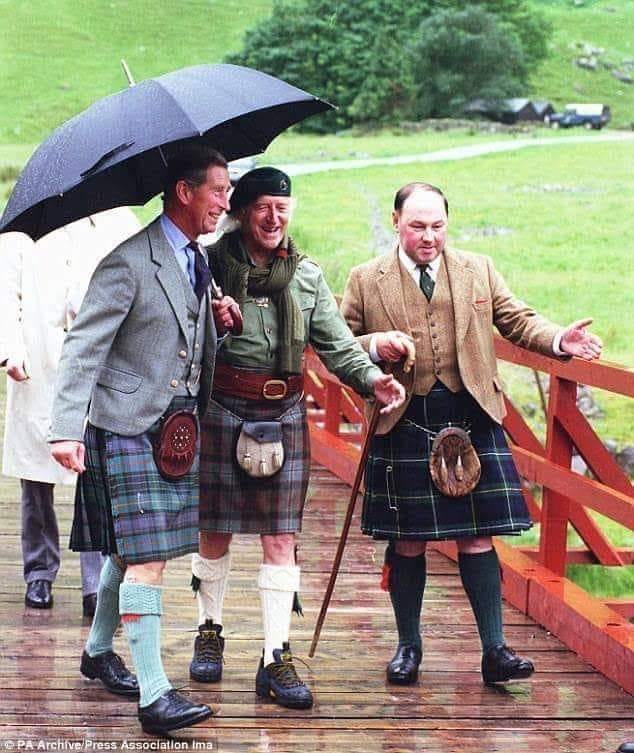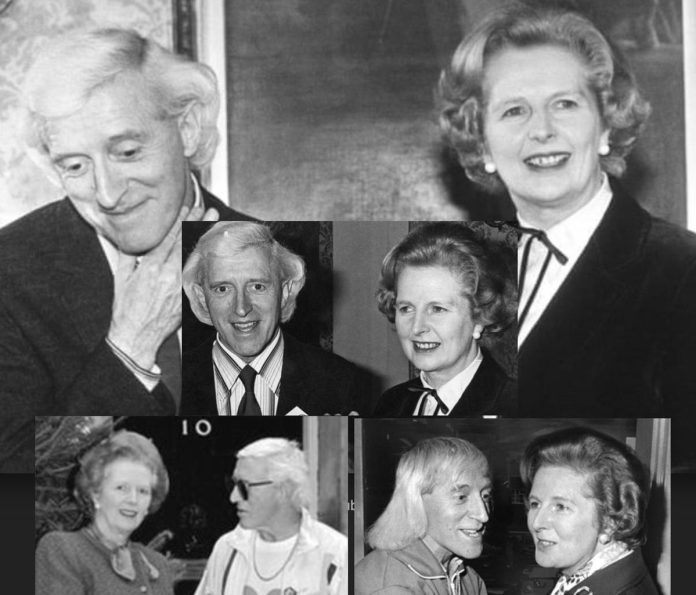Please begin by watching the following and then subscribing to the channel.
The complicity of the Conservative Party
The complicity of certain Conservative figures and broader systemic issues within the Conservative establishment played a significant role in allowing Jimmy Savile’s crimes to go unchecked for so long. This complicity can be seen through a combination of direct associations, failures to act on allegations, and the broader cultural environment that enabled such abuse. Here are some key points illustrating how the Conservatives were complicit:
- Close Ties with Prominent Conservatives: Jimmy Savile was known to have had connections with several high-profile Conservative politicians, including Prime Ministers Margaret Thatcher and John Major. Savile’s charitable work and celebrity status afforded him access to the upper echelons of British society, including regular invitations to Chequers, the Prime Minister’s country residence. These connections helped him cultivate an image of respectability and influence.
- Protection through Association: Savile’s relationships with powerful figures provided him with a layer of protection. His association with influential people made it less likely for allegations against him to be taken seriously or investigated thoroughly. The deference shown to Savile by these figures contributed to an environment where his actions were overlooked or dismissed.
Institutional Failures and Complicity
- Police and Political Influence: There have been claims that police investigations into Savile were hindered by his connections with influential figures. Some officers reportedly felt pressure to drop investigations due to Savile’s friendships with powerful individuals. This interference highlights how political connections can obstruct justice.
- BBC and Conservative Governance: During periods of Conservative governance, especially under Thatcher, the BBC faced significant political pressures. Although the BBC is supposed to be an independent institution, the broader political climate influenced its operations. There was a general reluctance to pursue allegations against a prominent figure like Savile, who was closely tied to the establishment, including the ruling Conservative party.
Cultural and Systemic Issues
- Culture of Deference and Silence: The era during which Savile committed most of his crimes was characterized by a culture of deference to authority and celebrity. This cultural attitude was prevalent within both the Conservative Party and British society at large, leading to a reluctance to challenge or investigate prominent figures.
- Failures in Child Protection Policies: During the 1980s and 1990s, under Conservative governments, child protection policies were often inadequate. There was a lack of robust mechanisms to address and investigate allegations of abuse, particularly against powerful individuals. The absence of stringent safeguarding policies and the failure to implement effective oversight allowed Savile’s abuse to continue.
Specific Incidents of Complicity
- Margaret Thatcher’s Endorsement: Margaret Thatcher’s close association with Savile is one of the most cited examples of political complicity. She reportedly lobbied for Savile to receive a knighthood despite opposition from within her own government, based on rumours of his inappropriate behaviour. Her repeated efforts to secure this honour for him reflect a troubling dismissal of these concerns.
- Failures to Act on Early Reports: There were early reports and rumours about Savile’s behaviour that were not acted upon by those in power. This inaction can be seen as a form of complicity, as it allowed his predatory behaviour to continue unchecked. The reluctance to pursue these allegations, despite knowing the risks, underscores a failure of responsibility among those with the power to intervene.
The complicity of Conservatives in the crimes of Jimmy Savile is a complex issue involving direct associations, institutional failures, and a broader cultural context that allowed abuse to be overlooked. The protection afforded to Savile by his political connections, the failure to act on early allegations, and the inadequate child protection policies of the time all contributed to a system that enabled his decades-long abuse. Addressing these issues requires a critical examination of the intersections between power, influence, and accountability in preventing such abuses in the future.

The complicity of the corporate legacy media
The complicity of the corporate media in the crimes of Jimmy Savile played a significant role in enabling his abuse to continue unchecked for decades. This complicity can be traced through various mechanisms, including the failure to investigate and report allegations, the protection of Savile’s public image, and the systemic issues within media institutions that prioritized reputation over accountability.
Failure to Investigate and Report
- Suppressing Allegations: There were numerous instances where journalists and media organizations became aware of allegations against Savile but chose not to pursue or publish these stories. Investigative leads were often dropped, and victims’ testimonies were ignored or dismissed. For example, in the early 2000s, Newsnight, a BBC program, investigated claims against Savile but the report was shelved, reportedly due to concerns over the lack of evidence and the potential impact on the BBC’s reputation.
- Lack of Investigative Journalism: The media’s failure to rigorously investigate the rumours and allegations surrounding Savile reflects a broader issue within corporate journalism. The reluctance to delve deeply into these claims can be attributed to a mix of fear of legal repercussions, the influence of Savile’s powerful connections, and a culture of deference to celebrity status.
Protecting Savile’s Public Image
- Celebrity Deference: Savile’s status as a beloved television and radio personality made media organizations hesitant to tarnish his image. The corporate media often prioritized maintaining positive relationships with high-profile figures to secure exclusive interviews and maintain viewer ratings, which contributed to a reluctance to challenge or investigate Savile’s conduct.
- Editorial Decisions: Editorial choices often leaned towards preserving Savile’s public persona rather than exposing the truth. Media outlets that might have considered running stories about his misconduct faced internal pressures to focus on his charitable work and celebrity status instead.
Systemic Issues Within Media Institutions
- Institutional Protection: Media institutions, including the BBC, where Savile worked for many years, exhibited systemic issues that contributed to the protection of Savile. The BBC, in particular, has been criticized for its handling of the allegations, with reports suggesting that senior executives were aware of rumours but failed to take appropriate action.
- Culture of Silence: The media industry at the time was characterized by a culture of silence regarding the misconduct of powerful figures. Whistleblowers and journalists who attempted to raise concerns about Savile faced significant obstacles, including a lack of support from their organizations and fears of career repercussions.
Specific Incidents of Media Complicity
- BBC’s Internal Failures: The BBC’s internal culture and procedures have been scrutinized for failing to address allegations against Savile. Despite multiple reports and complaints from staff and the public, the broadcaster did not conduct thorough investigations, allowing Savile to continue his abuse.
- Missed Opportunities for Exposure: There were key moments when media outlets had opportunities to expose Savile but failed to do so. For instance, in the 1970s, a Sunday Mirror reporter wrote an article hinting at Savile’s inappropriate behaviour, but it was heavily edited to remove any explicit allegations. Similar cases of editorial censorship occurred across other media platforms.
Posthumous Revelations and Media Response
- Delayed Accountability: It was only after Savile’s death in 2011 that the full extent of his crimes came to light. The posthumous airing of the ITV documentary “The Other Side of Jimmy Savile” in 2012 prompted a national outcry and led to numerous investigations. This delay in accountability highlights the media’s earlier failure to address and report on the allegations effectively.
- Media Introspection: In the aftermath of the scandal, there has been significant introspection within the media industry about how such a cover-up was possible. This has led to discussions about the need for more robust investigative journalism and greater willingness to challenge powerful figures, regardless of their celebrity status.
The complicity of the corporate media in the crimes of Jimmy Savile underscores a profound failure in journalistic responsibility and ethics. By choosing to ignore, suppress, or inadequately investigate allegations against Savile, media organizations contributed to an environment in which his abuse could continue unchecked. Addressing these failures requires a commitment to fostering a media culture that prioritizes accountability, supports investigative journalism, and protects whistleblowers and victims who come forward with allegations of misconduct.
KEEP US ALIVE and join us in helping to bring reality and decency back by SUBSCRIBING to our Youtube channel: https://www.youtube.com/channel/UCQ1Ll1ylCg8U19AhNl-NoTg AND SUPPORTING US where you can: Award Winning Independent Citizen Media Needs Your Help. PLEASE SUPPORT US FOR JUST £2 A MONTH https://dorseteye.com/donate/







